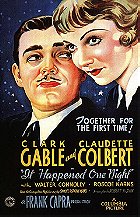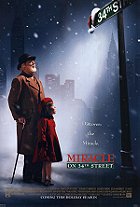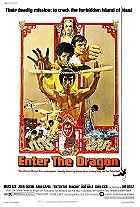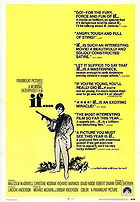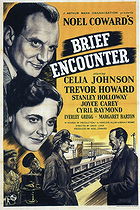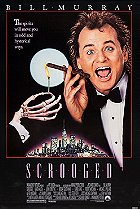The experience of dating can be harrowing in itself, and meeting the parents of a loved one may be the most intimidating part of the ritual. Helmed by comedy veteran Jay Roach (Austin Powers: The Spy Who Shagged Me), Meet the Parents presents an amusing exaggeration of the worst aspects of the ordeal. Interestingly, this is the remake of a 1992 film of the same name, though the original script was heavily rewritten. The original Meet the Parents, although not seen very widely, was greeted with a positive reception, and it's therefore unsurprising that a reworking with big-name actors was eventually green-lit. Fortunately, unlike most remakes, Meet the Parents is actually good - consistently hilarious and perpetually enjoyable. Over $160 million in domestic ticket sales and a perpetual spot near the top of DVD sales charts would indicate that movie-goers loved Meet the Parents about as much as this reviewer did.

In the film, Ben Stiller plays a Jewish male nurse bearing the unlikely (unfortunate?) moniker of Gaylord "Greg" Focker (pronounced just the way it sounds). On the verge of proposing to his girlfriend Pam (Polo), Greg realises he'll have to ask permission from Pam's father before he can propose. Thus, Greg and Pam head off to visit Pam's parents. Unfortunately, things go wrong for Greg from the beginning as his suitcase gets lost at the airport. And while Greg has no problems winning over Pam's mother Dina (Danner), her father Jack (De Niro) is a whole other story. Jack is a loving family man, but he's a retired, paranoid CIA agent who's mistrusting of Greg from the beginning. Greg's quest for approval becomes seriously sidetracked as Murphy's Law soon takes hold and a string of mishaps turn him into a master of disaster in the eyes of Pam's family and friends.
Meet the Parents is a comedy of errors, and a great one at that. It's also one of the most squirm-worthy comedies you will ever see. The humour is laugh-out-loud hilarious, and dances around the trepidation that guys normally have about meeting their prospective spouse's parents. The movie plays this tension to a farcical degree, yet it actually feels somewhat real, as odd as that may sound. Greg is unable to do anything right, and the harder he tries, the deeper he digs himself in. His quest for acceptance is continuously hindered by the hard-nosed Jack, whose frank disposition and minimal sense of humour terrifies Greg. Jack has a set of inviolable standards, each of which Greg is sure to violate. And no matter what Greg says, Jack will intimately analyse it, question it and reinterpret it. Rest assured that throughout the majority of its running time, Meet the Parents delivers inspired hilarity, as it leaps from one hilarious set-piece to the next.

Director Jay Roach, who rose to fame with Austin Powers: International Man of Mystery and its sequel, did a remarkably restrained job with Meet the Parents in comparison to the Austin Powers movies. Roach managed to keep the characters on this side of hyperbolic ridiculousness, and consequently the patently weird happenings at the Byrnes manner are all the funnier. However, the film takes a turn for the worst during its final third. Following the initial 60 or 70 minutes of innocuous fun and eye-watering hilarity, the "dump the crap on Greg" routine grows old. Eventually, it stops being funny, and you will likely begin shouting "Oh come on, enough already" rather than laughing. There's only so much torture you can watch a human endure before you flat-out feel sorry for them, and this is the point where you can no longer laugh. Admittedly, too, the ending itself is sappy and telegraphed quite far in advance.
As Greg, Ben Stiller is Ben Stiller. For basically every movie he does, Stiller plays the same role: the poor, well-intentioned, harmless soul adrift in circumstances beyond his control. Nevertheless, Stiller's performance is effective alongside Robert De Niro - their interactions are frequently hysterical. De Niro is a talented comic actor, and he's in wonderful form here; seething with machismo and a thinly-veiled disdain for Greg. De Niro managed to use his tough-guy image to perpetually keep us on the edge of our seats; wondering when he'll explode and do something outrageous. De Niro's nuanced facial expressions in particular are a constant source of amusement. The rest of the cast members are equally good, from Blythe Danner as Dina to the endearing Teri Polo as Pam. Owen Wilson is also great as the too-good-to-be-true ex fiancée.

The negative aspects of Meet the Parents are dramatically outweighed by the positive attributes. A large majority of comedies come and go without a second glance, and have little replay value because the punch-lines are no longer funny after being delivered once. Meet the Parents, on the other hand, is one of those rare comedies with almost infinite replay value, as the back and forth between Stiller and De Niro never grows stale. Director Jay Roach and screenwriters Jim Herzfeld and John Hamburg have created a flawed, yet genuinely funny and enjoyable comedy with enough personality to overshadow the noticeable kinks. It should find a tremendous audience with both males and females, and it deserves to do so. Due to the film's tremendous commercial success, a sequel followed in 2004: Meet the Fockers.
7.7/10
 Login
Login
 Home
Home 183 Lists
183 Lists 1670 Reviews
1670 Reviews Collections
Collections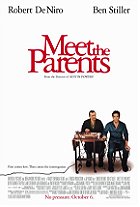
 0 comments,
0 comments, 



